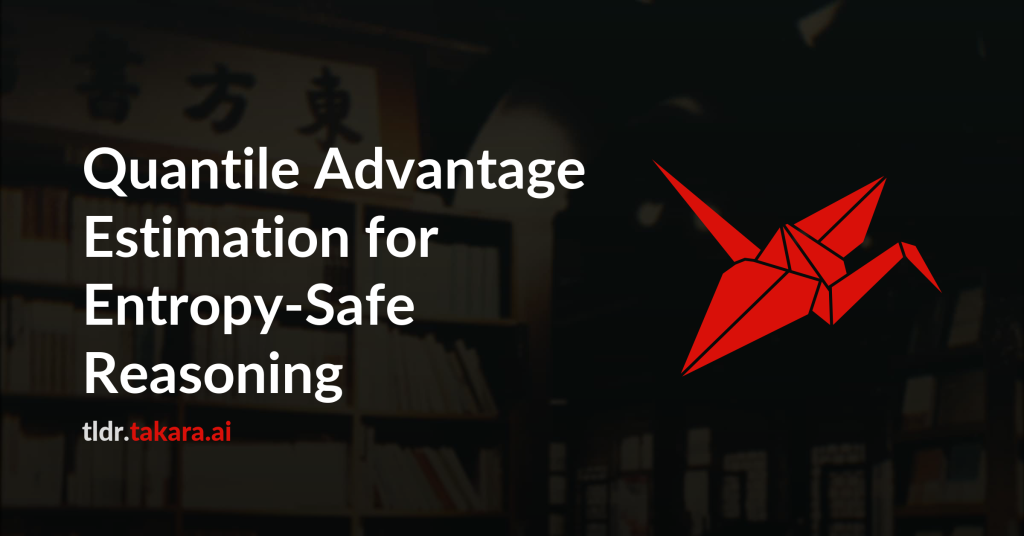Reinforcement Learning with Verifiable Rewards (RLVR) strengthens LLM
reasoning, but training often oscillates between {entropy collapse} and
{entropy explosion}. We trace both hazards to the mean baseline used in
value-free RL (e.g., GRPO and DAPO), which improperly penalizes
negative-advantage samples under reward outliers. We propose {Quantile
Advantage Estimation} (QAE), replacing the mean with a group-wise K-quantile
baseline. QAE induces a response-level, two-regime gate: on hard queries (p <=
1 – K) it reinforces rare successes, while on easy queries (p > 1 – K) it
targets remaining failures. Under first-order softmax updates, we prove
{two-sided entropy safety}, giving lower and upper bounds on one-step entropy
change that curb explosion and prevent collapse. Empirically, this minimal
modification stabilizes entropy, sparsifies credit assignment (with tuned K,
roughly 80% of responses receive zero advantage), and yields sustained pass@1
gains on Qwen3-8B/14B-Base across AIME 2024/2025 and AMC 2023. These results
identify {baseline design} — rather than token-level heuristics — as the
primary mechanism for scaling RLVR.

